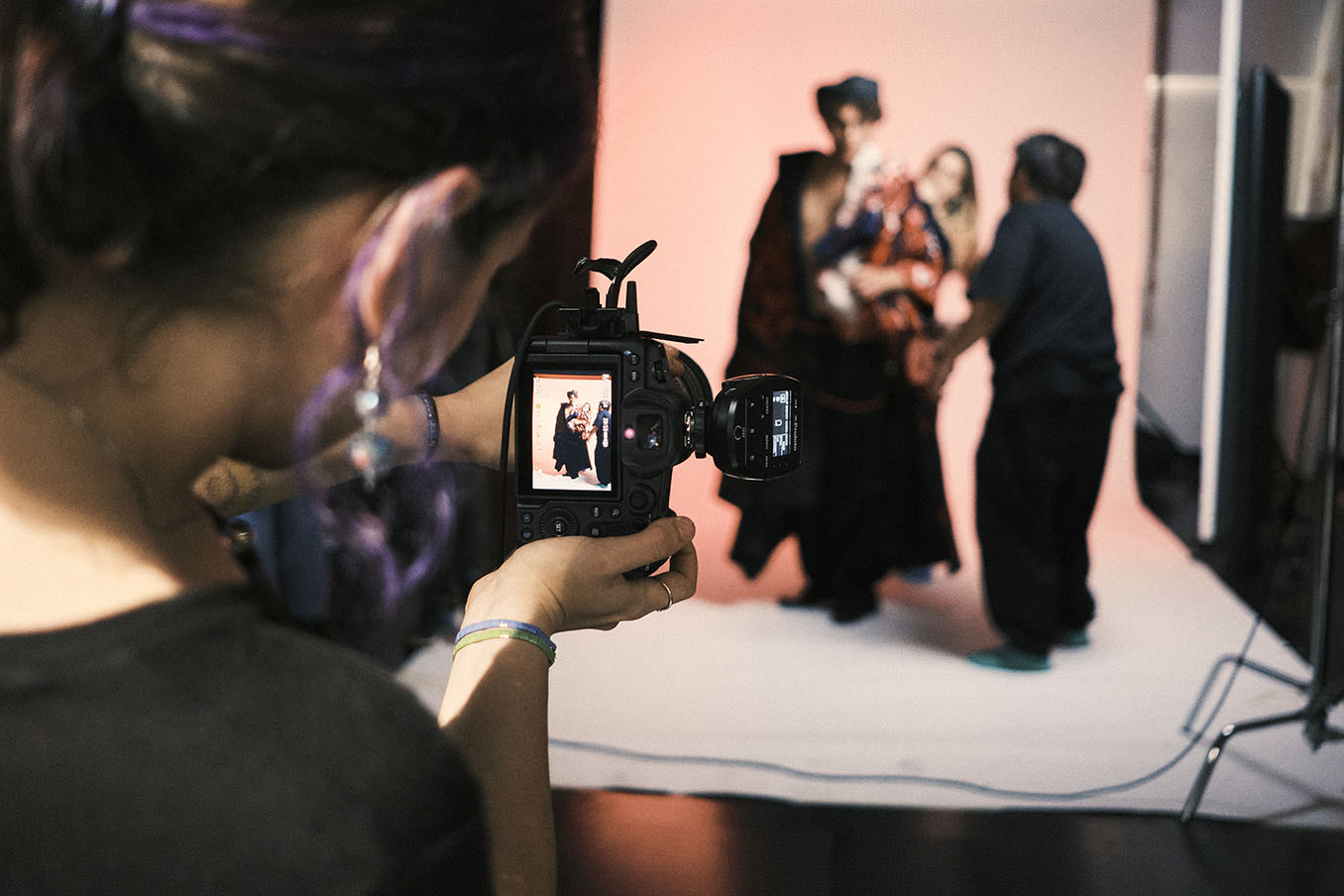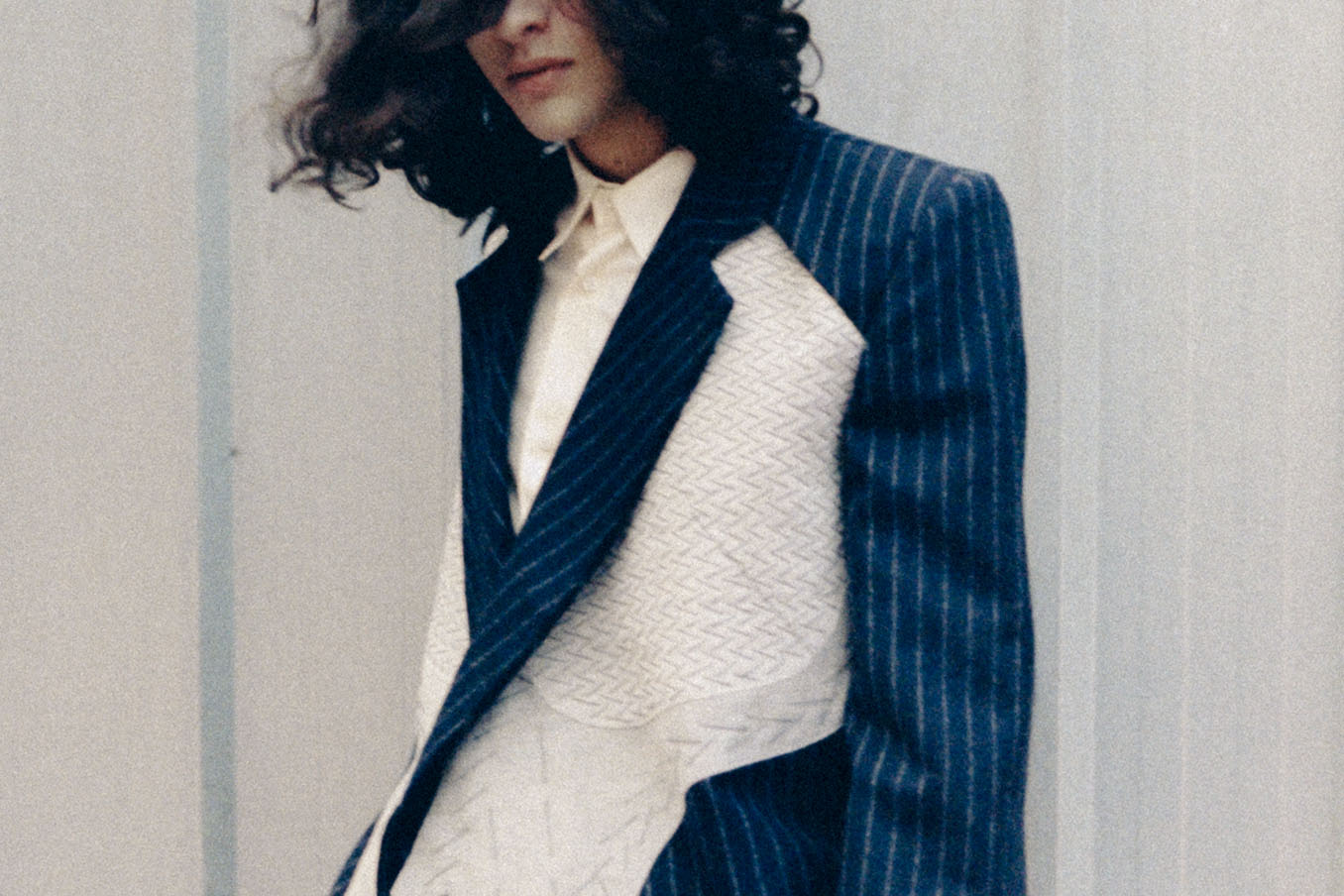Overview
What is Fashion Futures and Foresight Strategies at Polimoda?
The Master in Fashion Futures & Foresight Strategies is a reimagined program building on Polimoda’s long standing competence in fashion trend forecasting. As the first school to launch a master’s program in this field, Polimoda has evolved its educational offering to address the technological, societal, and geopolitical shifts reshaping the fashion and lifestyle industries. By adopting a transparent and participatory model rooted in data and creativity, Polimoda encourages a forward-thinking mindset, one that champions authentic expression, collective awareness, and a more meaningful relationship with change.
This innovative program equips visionary minds with interdisciplinary tools and methods to anticipate change, identify emerging signals, and create foresight strategies for the fashion and lifestyle industries. Standing at the intersection of creativity and technology, the course bridges cultural insight with emerging technologies and data analytics, empowering students to navigate the evolving demands of fashion innovation, sustainability, and transformation.
The program distinguishes itself through its integration of three complementary approaches that merge qualitative and quantitative foresight and fashion trend forecasting methods within the context of fashion and lifestyle:
- Term 1: Foundations of Strategic Foresight & Fashion Futures
- Term 2: Fashion Trend Forecasting & Culture
- Term 3: Quantitative Insights: Analytics & Artificial Intelligence
Unlike traditional programs in foresight strategies and fashion trend forecasting rooted solely in business or policy, this course combines cultural semiotics, ethnography, creativity and speculative design with data analytics, AI, and predictive modeling. Students learn to move fluidly between humanistic and technological approaches, developing both analytical rigor and creative imagination. Its unique focus on fashion, beauty and lifestyle industries as well as the integration of three complementary approaches pushes co-creation, participatory culture and fashion innovation.
Highlights
The course offers a dynamic blend of theoretical foundations and hands-on application, designed to mirror real-world foresight strategies and fashion trend forecasting in the fashion industry. Each term is enriched by the guidance of visiting experts, ensuring that learning remains anchored in current professional needs. Structured term projects prepare students to navigate the evolving demands of the job market, while a personal portfolio is developed throughout the course in preparation for employability and career progression.
Core Competencies
- Strategic Analysis & Foresight Strategies
- Fashion Trend Forecasting
- Qualitative and Quantitative Research Methods
- Cultural Semiotics & Ethnography
- Speculative Design & Critical Futures
- Storytelling & Strategic Narratives
- AI-Assisted Forecasting & Data Analytics
- Systems Thinking & Complexity Analysis
- Ethical Decision Making
- Sustainability & Circular Economy Strategies
Why at Polimoda
Pioneering expertise
Building on Polimoda’s long standing competence in fashion trend forecasting, Polimoda has reimagined this course to address the rapidly changing landscape of foresight, integrating both traditional methods and emerging technologies.
Interdisciplinary depth
The program uniquely combines humanistic approaches (cultural theory, ethnography, speculative design) with technological methods (AI, big data, machine learning), preparing students to bridge creativity and analysis in professional contexts.
Industry integration
Classes are held by industry professionals and academic faculty from the fashion, luxury, and lifestyle industries with hands-on and innovative teaching materials. Due to the small class policy, students have the support of a leading teacher throughout the course, ensuring personalized guidance and strong teacher-student relationships that build confidence, motivation, and resilience.
Visiting experts
Distinguished professionals and thought leaders from diverse industries contribute their insights, experience, and forward-looking perspectives, providing valuable and practical insights into how students can apply their learning to the real world.
Location advantage
Based in Florence, students study in one of the world’s most important cultural cities. The region’s rich heritage in fashion and luxury manufacturing provides unparalleled access to industry insights and craftsmanship traditions, while the extensive Polimoda library—one of the largest fashion libraries in Europe—supports theoretical learning.
Future-focused curriculum
Course content is continuously updated to maintain a future-oriented perspective, ensuring all courses taught are current and applicable to the evolving fashion landscape.
Learning method
Our teaching methodology combines theoretical foundations with experiential practice through:
- Lectures and seminars: Introducing key frameworks, cultural theory, and semiotics
- Collaborative workshops: Focused on scenario building, speculative design, and storytelling
- Method labs: Students experiment, develop and test new methodologies.
- Studio-based sessions: Experimentation with materials, visuals, colors and narratives
- Data labs: Practical application of data based methodologies such as AI, text mining, quantitative based predictive analysis
- Ethnographic fieldwork: Observation of emerging micro-cultures and weak signals
- Speculative design prototyping: Creating future fashion artifacts and experiences through storytelling, visualizations, and sensory exploration
- Trend analysis projects: Supported by data visualization and interactive storytelling formats
- Continuous coaching: Individual guidance with peer feedback and interdisciplinary collaboration
- Independent study: Supported by Polimoda’s extensive library resources
The course can conclude with an internship in the fashion, luxury, or lifestyle industry. Polimoda has a great relationship with international industry, allowing for intern opportunities from a wide range of sources. Our graduates are successful across the fashion, luxury and lifestyle industries and beyond.
Assessment Methods:
Each term includes a structured project designed to develop and apply the skills learned during that period. The course concludes with a final project that integrates the skills gained across all three terms.
Contact Hours: 700 contact hours per year
Visiting Experts
Visiting experts at Polimoda are important professional figures from the fashion industry who share tools, guidance, motivation and resources with students throughout their program. They provide valuable and practical insights into how students can take what they learn in their course and apply it to the real world. They are essential to fostering student empowerment via their challenging and stimulating lessons crafted uniquely for Polimoda students.
Philip Fimmano
Philip Fimmano is a contemporary fashion and lifestyle specialist, and expert in trend forecasting. His work with Trend Union, one of the most renowned trend forecasting agencies founded by Li Edelkoort, Bloom magazine and strategic studies for many international brands, has led Fimmano to work in industries as varied as textiles, interiors, food, craft, luxury, travel and retail.
In 2011, Fimmano co-founded Talking Textiles: an ongoing initiative to promote awareness and innovation in textiles through touring exhibitions, a trend publication, a design prize and free educational programmes. He is the co-author of the design book A Labour of Love (Lecturis, 2020) and the co-founder of the World Hope Forum, a new platform for creative community building. He serves on the boards of the International Folk Art Market in Santa Fe, Xtant in Mallorca, New York Textile Month and FIT’s Textile Department.
Course Structure
This course is designed for visionary and future-oriented individuals who want to anticipate change and shape long-term strategies in fashion and lifestyle industries. The program attracts creative thinkers and strategists interested in connecting cultural insight and technology to imagine alternative futures and pursue roles that bridge creativity and analysis such as fashion trend forecasting, strategic design, innovation consultancy, or cultural research.
- Research Methodology & Fashion Studies
- Sociology of the Imaginary
- History of Fashion
- Introduction to Strategic Foresight & Futures Studies
- Ethnography of the Emerging: Observing Micro-Cultures & Weak Signals
- Anticipatory Governance in Business & Policy
- Systems Thinking & Complexity in Social Change
- Decolonizing Fashion Research: Methods Beyond the Western Gaze
- Fashion Futures & Circular Economy
- Speculative Design & Critical Futures
- Contemporary Fashion & Visual Culture
- Aesthetics: Color, Texture & Form as Cultural Signals
- Visioning Fashion Futures: Scenario Development & Strategic Narratives
- Sensorial Futures: Touch, Smell, Sound & Embodiment
- Material Forecasting & Textile Innovation
- Data Analytics for Foresight: From Signals to Insights
- Interpreting Consumer Behavior Through Data
- Machine Learning & Predictive Modeling for Fashion Trend Forecasting
- Social Media Analytics
- AI Ethics & Bias in Decision-Making
- AI for Sustainability in Supply Chains
- Immersive Technologies: VR/AR in Experience Prototyping
Each term includes a structured project designed to develop and apply the skills learned during that period. The course concludes with a final project that integrates the skills gained across all three terms.
Careers
This course offers career orientation. Based on individual character and acquired skills, graduates can pursue diverse career paths including:
Develops long-term visions and scenarios to guide brands and organizations in anticipating future challenges and opportunities.
Identifies and interprets based upon a trend analysis emerging cultural, aesthetic, and consumer trends to inform creative direction and market strategy.
Advises companies on how to leverage foresight, creativity, and technology to design sustainable and forward-looking business strategies.
Studies cultural shifts, values, and social dynamics to uncover deep insights that inform trend analysis, storytelling, and strategic decisions.
Integrates design thinking with systems and foresight methods to create innovative solutions and experiences for future contexts.
Applies artificial intelligence and data analytics to extract insights and inform strategic decision-making in fashion and lifestyle industries.
Through trend analysis, anticipates and analyzes emerging material innovations and color trends to guide product development.
Develops long-term sustainability strategies and analyzes environmental, social, and governance factors with a foresight perspective.
Graduates also find opportunities in strategic roles within broader creative industries, reflecting the program’s comprehensive approach to foresight education.
Career services
The Career and Company Relations Office supports all students by creating connections with the working world. It promotes educational collaboration with fashion companies via field trips, workshops, and lectures. Customized career services include CV assistance, career days, individual interviews, and internship proposals to help students access the job market.
The course can conclude with an internship in the fashion, luxury, or lifestyle industry. Polimoda maintains strong relationships with the international fashion, luxury, and lifestyle community, providing numerous internship opportunities from diverse sources.
Facilities
Polimoda hosts a range of world class facilities such as state of the art computer labs equipped with an array of 3D modeling and graphic programs, study areas for communal and independent study, two lecture halls, academic services, large professional workshops, photo studios, and café.
Students have access to:
- Two campuses
- All necessary equipment for students to work on individual or group projects
- Access to computer and editing equipment
- Access to one of Europe’s largest Fashion Libraries for visual research
- Study areas and lecture halls
Over its two sites, Polimoda exceeds 15,000 square meters of fashion education spaces, capable of accommodating over 2,000 students. The two campuses at Manifattura Tabacchi and Villa Favard, located a short distance from each other, form a single base for fashion education.
Villa Campus
Villa Campus, housed in the historic Villa Favard, serves as Polimoda’s headquarters and heart of fashion business education. Home to programs in marketing, communication, merchandising, retail, product management, and sustainable fashion, this elegant setting combines educational excellence with essential student services. From student orientation to career development, corporate relations to academic support, Villa Campus nurtures both professional growth and creative dialogue in a historic setting that bridges fashion’s past and future.
Beyond academics, Villa Favard stands as Florence’s premier fashion culture destination. The campus hosts international industry leaders and cultural events, creating a dynamic space where fashion education meets real-world experience.
Manifattura Campus
Manifattura Campus redefines the standards of fashion education: modern and multifunctional spaces host classrooms and technologically advanced workshops designed to faithfully reflect the industry’s environment and equipment. Spanning over 10,000 square meters, the campus includes facilities that are ideal for art direction and business students: six photography studios of various sizes, theoretical classrooms, drawing spaces and computer labs with cutting-edge design and publishing software.
Library
The extensive library resources are available to all students to help them study around their subjects with publications on contemporary fashion, arts, business, sociology, and culture, providing a rich context for their studies.
Polimoda’s library is one of the largest fashion libraries in Europe. Located in Florence’s Villa Favard, Centro di Documentazione Matteo Lanzoni – Polimoda Library holds an extensive collection of fashion publications.
Since its establishment in 1986, the Polimoda Library has grown to become a hub of fashion knowledge. With over 29,000 volumes, including books on fashion history, design, textile technology, marketing, and economics, it caters to diverse interests. The library also features an array of fashion magazines, look-books, film resources and online materials. It is also a place for quiet, independent study.
Requirements
The basic requirements to apply for this course are:
- Curriculum Vitae (CV) with motivation letter
- English language proficiency
- Bachelor’s degree (or equivalent) or professional work experience in a related field
This course description and indication of fieldtrips is representative but not exhaustive of the full program. Course content can be updated throughout the program to maintain a future-oriented perspective, ensuring all courses taught are current and applicable to the evolving fashion landscape.


